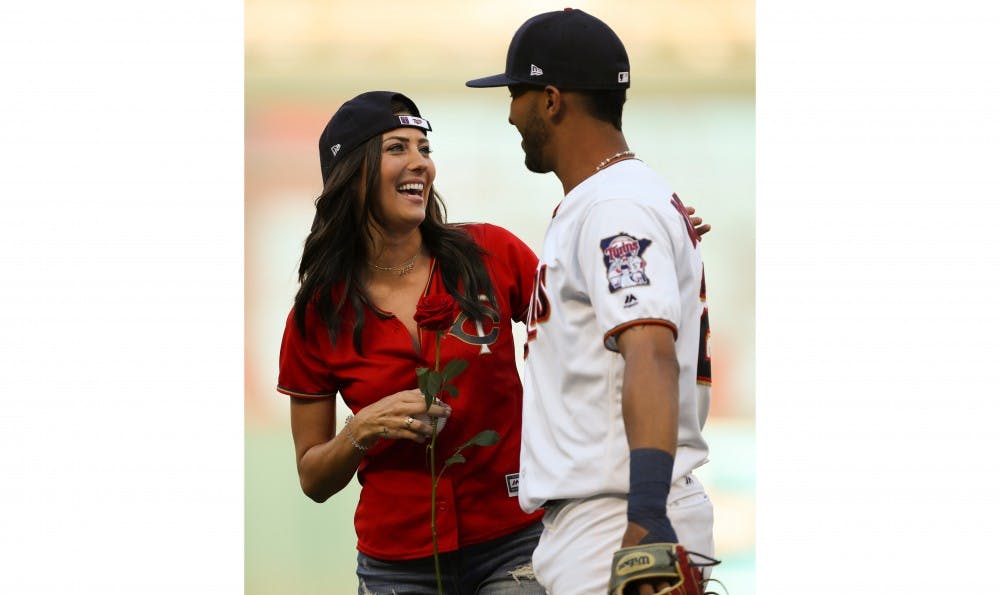For those of you who have some self-respect and are not fellow Bachelor fanatics, “Bachelor in Paradise” is a spin-off of “The Bachelor” and “The Bachelorette,” in which the spurned rejects of past seasons gather on an island resort in Mexico for another shot at love.
The catch, of course, is there is always trouble in “paradise.”
While “The Bachelor” has become a mainstay of U.S. television, it also has a more sinister side that, at times, makes me uncomfortable with my guilty pleasure.
What draws people to the franchise is the idea of ironic consumption, when people realize their weakness against the more idiotic products of culture and succumb to their charms, while maintaining a sense of humor about it. Most Bachelor fans, including myself, are aware of the show’s ridiculousness, but we love it because it’s fun.
And so, equipped with an insatiable appetite for drama and a thirst for tears, we watch semi-reality unfold as producers tease out romance, drama and humor with an equal-parts nurturing and domineering hand.
And we, the viewers, bond over rooting for fan favorites like the lovable Grocery Store Joe, reveling in the redemption of former franchise villains like Krystal Nielson, and discussing Bachelor royalty Reality Steve and Anna Marie. We gather with friends to inhale episodes like potato chips.
But the “Bachelor in Paradise” experience isn’t all about sculpted models with big egos building Instagram followings and hawking diet teas after their 15 minutes of fame.
Producer manipulation in order to concoct drama robs contestants of a certain level of agency over their choices. This is especially done through “The Office”-esque confessional narratives — what Canadian poet Suzannah Showler, one of the many academics to study "The Bachelor" as literary text, refers to as “a form of ‘Bachelor’ currency.”
Another problem arises when we see the show as a fictional world of characters whose struggles and conflicts seem more fantasy than reality. Nothing bad could ever really happen to these people, we tell ourselves. It’s just not real.
And at the same time, we watch their tears and pain and conflicts, seeing lives come together just to fall apart again. We walk at the knife’s edge between amusing and cruel because the thing is, we want them to suffer. We enjoy the drama. So even if it's all in good fun, never with purposefully poor intentions, there's an inherent sadism to watching the drama unfold.
In the previous season of “The Bachelor,” for example, an agonizing 40-minute scene showed former Bachelor star, Arie Luyendyk Jr. break up with his then fiancee Becca Kufrin in order to rekindle a relationship with runner-up Lauren Burnham. The scene made you feel like you were intruding on a private moment. The host called it raw, but I called it sad and uncomfortable. Yet, I kept watching.
"The Bachelor” fun also quickly turned to horror in the previous season of “Bachelor in Paradise,” when production was halted after allegations of sexual misconduct. Of course, we never wanted anyone to suffer in this kind of way. Tears, love triangles, and testosterone and liquor-induced fights are one thing, but this is entirely another.
It’s important to remember the franchise creates an environment where tequila flows all day, blurring lines regarding consent and lack thereof. The shows are incubators for unspeakably damaging misconduct. Yet, I’m still watching.
The incidents bring up questions on the responsibility producers have in toeing the line between catching juicy moments and protecting contestants. Though we can’t forget part of the responsibility falls on us, too.
While I sit and watch mindless reality TV while eating dinner after a long day of classes and work, I must also sit with my own complicity.
As I gathered with friends to binge this season of “Bachelor in Paradise,” it didn’t quite sit right with me, despite the lovey-dovey moments and starry-eyed engagements. Maybe that means I’ve got a conscience after all, and maybe that means I should stop watching — at some point, at least.




